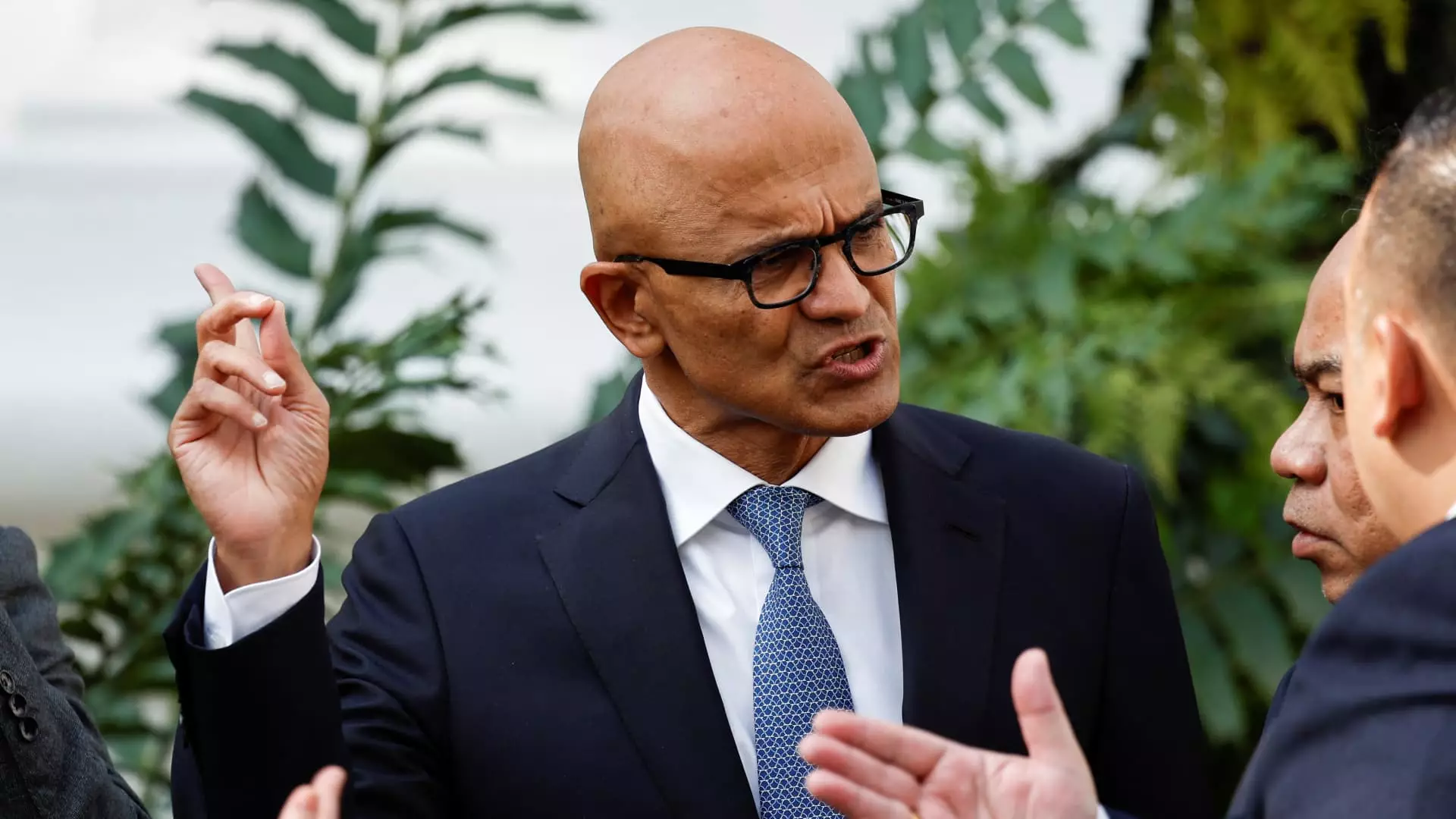Microsoft’s widespread layoffs in 2025, affecting over 15,000 employees, paint a picture of an industry teetering on the edge of uncertainty beneath a veneer of technological progress. While the company’s stock soaring past $500 signifies a moment of triumph for investors, it conceals the human toll and strategic discord that have become increasingly apparent. The fact that Microsoft employs around 228,000 people yet claims headcount remains “basically flat” suggests a fragile balance—growth driven not by expanding opportunities, but by ruthless efficiency and consolidation. This approach may temporarily prop up investor confidence, but it risks eroding the very innovation and employee loyalty that foster long-term success.
The narrative of technological dominance often cloaks the underlying insecurity that pervades the industry. For all the talk of AI revolutionizing how we work and live, behind closed doors, companies are tightening belts, trimming fat, and questioning their future commitments. Microsoft’s recent layoffs aren’t isolated; they reflect a broader trend where profitability is prioritized over stability and morale. This pattern reveals an industry caught in a paradox: a relentless pursuit of innovation that simultaneously demands ruthless cuts and cost rationalization, often at the expense of the very talent that powers this progress.
Trust Erodes in the Shadow of Economic Strategizing
Employee disillusionment at Microsoft underscores a profound crisis of trust and corporate responsibility. Comments from within the company highlight a growing skepticism regarding whether such cutbacks align with Microsoft’s core values. One Microsoft veteran expressed disillusionment, noting that decisions driven purely by macroeconomic pressures seem to contradict the organization’s mission of empowerment and innovation. This erosion of loyalty is not merely a subjective sentiment; it signals a deeper cultural risk. When employees perceive that their company’s value system is compromised for immediate financial gains, morale suffers, and productivity declines.
Moreover, these cutbacks challenge the narrative of Microsoft as an employer of choice, especially when industry giants position themselves as beacons of innovation and stability in a rapidly shifting technological landscape. The dissonance between corporate rhetoric and strategic pragmatism raises questions about the authenticity of company values and whether they truly serve long-term sustainability or are mere marketing slogans. In a sector that thrives on top talent, this erosion of trust could have profound repercussions far beyond the immediate layoffs, impacting innovation pipelines and market competitiveness.
The Myth of Technological Immutability and the Danger of Short-Term Gains
The AI boom, while heralded as a new frontier, reveals itself as more of a double-edged sword than an unequivocal advancement. Microsoft’s emphasis on AI-driven transformation, reflected in Nadella’s call to reimagine their mission, often feels like a superficial rallying cry rather than a genuine strategy rooted in sustainable growth. Reality suggests that the real concern is not about what AI can do for society but how companies leverage it for quick financial wins.
This obsession with short-term gains from AI and cloud services—Nvidia chips, Azure, and related innovations—obscures the fact that the industry’s most valuable asset remains its people. Ironically, it is the aggressive layoffs and shareholder-focused recalibrations that threaten to undermine the very foundation of long-term progress. As Nadella hints at a shift “from a software factory to an intelligence engine,” one must question whether this transformation is driven by authentic vision or mere strategic positioning for market dominance.
The underlying issue extends beyond Microsoft; it questions the sustainability of a technological ecosystem that increasingly values shareholders’ immediate dividends over genuine innovation and employee well-being. As the industry’s financial architecture leans toward short bursts of profitability, it risks losing its soul—its capacity to truly innovate for societal good and to foster an inclusive digital future.
In reflecting critically on Microsoft’s recent upheaval, it becomes clear that the industry’s current trajectory is unsustainable. While technological breakthroughs and market valuations paint an image of progress, the human consequences and long-term risks often remain hidden. Leaders like Nadella must confront the uncomfortable truth: genuine progress cannot be built merely on cost-cutting or short-term profit maximization. Instead, aspiring for sustainable innovation requires cultivating trust, valuing talent, and ensuring that the morals guiding these decisions are aligned with the ambitious visions they espouse. Only then can the industry move beyond the illusion of unrelenting success and cultivate a resilient ecosystem capable of meaningful and lasting change.


Leave a Reply